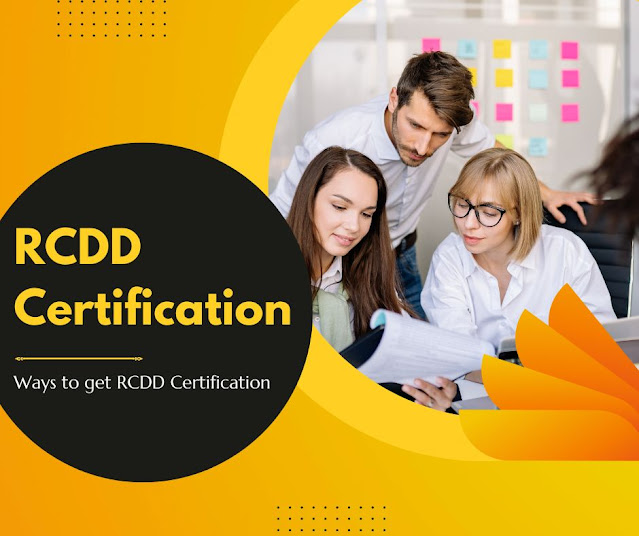How to get RCDD Certification
When it comes to communications, having a Registered Communications Distribution Designer (RCDD) accreditation is a terrific approach to getting ahead of the competition. The credential, created by the Building Industry Consulting Service International (BISCI), certifies that you have a certain degree of knowledge, experience, and skill in communication system design. On bigger and more federal assignments, it's also becoming more typical to require that someone in your organization who is working on that project has an RCDD designation before your bid can be approved. But how can you pass through the certification procedure and exam necessary for RCDD certification? We're delighted you inquired...
How to Prepare for the RCDD Exam
Structured Exam Courses
Structured courses focus on what you need to learn in a classroom setting, whether it's an in-person classroom, a virtual classroom, or a blend of the two. These courses are available through a variety of organizations, including BISCI, and at a variety of time periods to complete the course content, giving you the flexibility to work at your own speed. In general, an in-person program would have a set time frame, usually over a few days or weeks, but online courses will provide you with more flexibility in your schedule.
In general, these courses will consist of a few dozen hours of lectures, videos, or other courseware, as well as 120-150 hours of additional independent study to guarantee that you have the information required to finish the course successfully. Materials and course books to assist you to prepare for the test will cost anywhere from $1,000 to $5,000. If you're a veteran who qualifies for the GI Bill, these expenditures are frequently reimbursed entirely by that program, leaving you with almost no out-of-pocket expenses other than the time and effort you put into exam preparation. There are also other possibilities for extra study aids, which we will cover further below.
Independent Study Tools
But what if that's not how you want to study for the RCDD exam? Many professionals have enough knowledge in their area that they don't want to waste time in classes that regurgitate stuff they already know. Perhaps you require extra time to complete the training material or require additional study materials to ensure you have a firm handle on the subject. There are a variety of choices accessible in these situations.
- The BISCI Telecommunications Distribution Methods Handbook is the standard manual used in practically all courseware and in-person courses, and it is strongly recommended for your own study. It serves as the foundation for a substantial number of the exam questions, thus having a firm grip on the material is essential for achieving the desired outcomes.
- BISCI and other organisations also offer a few of additional classes that might assist you pick and select which particular areas you need to improve in. BISCI's DD101, Foundations of Telecommunications Distribution Design, and DD102, Designing Telecommunications Distribution Systems are two examples.
- A number of companies provide flash cards for studying the content in the handbook and exam, as well as test questions that are likely to appear on the exam. They will often cover hundreds to thousands of questions in a set, allowing you to review as much knowledge as you need to pass the exam.
- Many organisations provide practise examinations, either online or on paper, so you may work your way through and determine where you're struggling with your study. This helps you to concentrate on the areas where you need assistance rather than spending time studying content that you already know.
- In most cases, the review material is available both in paper format, online and through aps on mobile devices. This allows you to study in virtually any setting, whether it's a quick glance on your phone while waiting at the doctor's office, glancing through a paperback while traveling out of reasonable internet service or while dedicating time in the office or at home at your computer.
- In most situations, the review material is offered in paper form, online, and through mobile app. This enables you to study in almost any situation, whether it's a brief glimpse on your phone while waiting at the doctor's office, a fast glance through a book when travelling outside of decent internet coverage, or investing time at the workplace or at home at your computer.
When you apply to take the test, you must supply evidence of several sorts. To make up the gap between the two and five year marks, you'll need to demonstrate your experience and any schooling you've attended. You must submit an application and a nonrefundable fee, as well as four letters of reference: one personal, one from your present company, and two from clients. If you are self-employed, you may substitute a third customer reference for the employer reference.When you apply to take the test, you must supply evidence of several sorts. To make up the gap between the two and five year marks, you'll need to demonstrate your experience and any schooling you've attended. You must submit an application and a nonrefundable fee, as well as four letters of reference: one personal, one from your present company, and two from clients.




Comments
Post a Comment